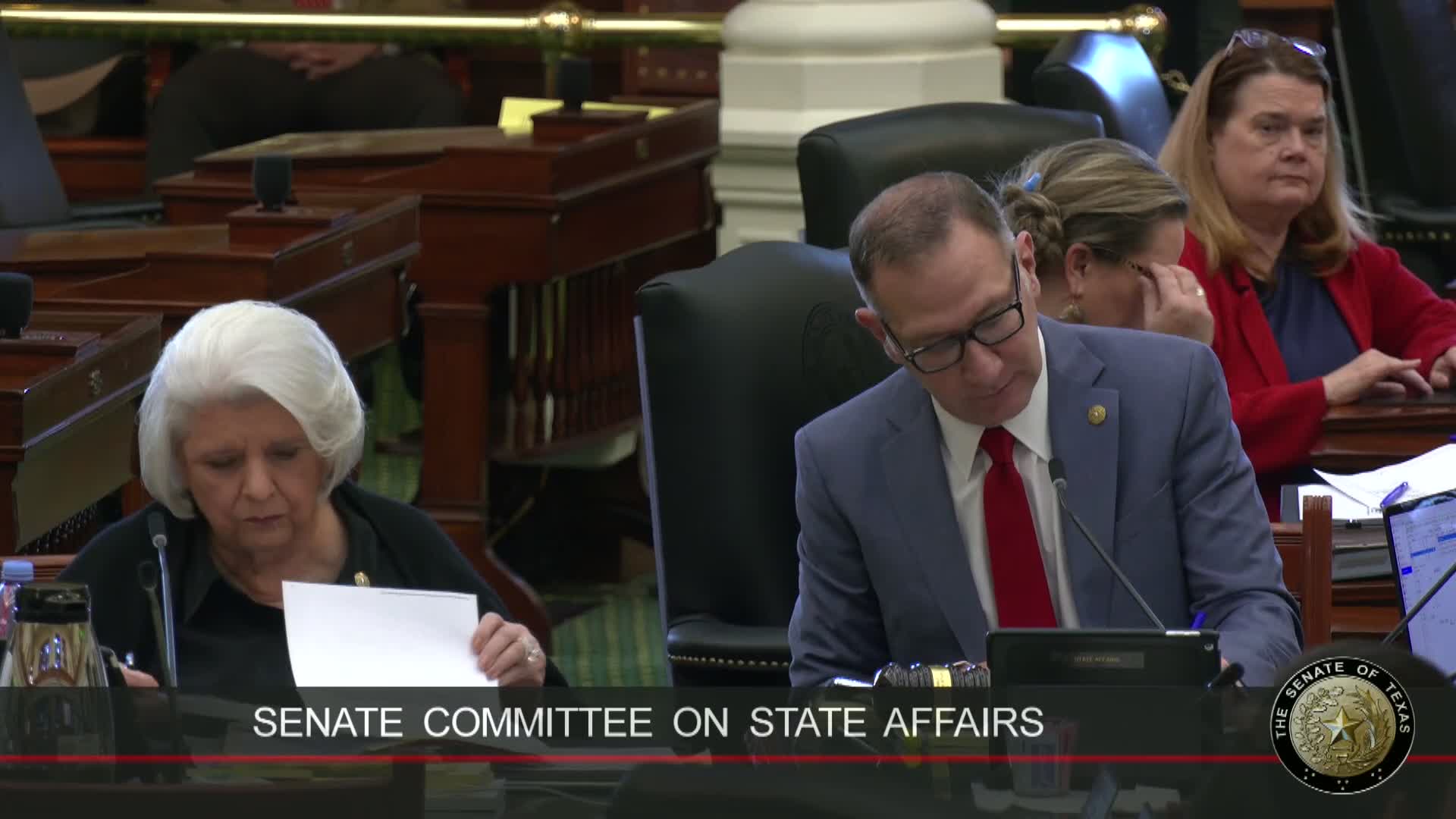Committee hears opposing views on bill to make Supreme Court final arbiter of rare constitutional splits
Get AI-powered insights, summaries, and transcripts
Subscribe
Summary
Chairman Hughes, the bill—author, told the Committee on State Affairs that Senate Bill 1210 would resolve rare situations where Texas—s two high courts disagree on constitutional questions by making the Texas Supreme Court the final arbiter on questions of the Texas Constitution.
Chairman Hughes, the bill—author, told the Committee on State Affairs that Senate Bill 1210 would resolve rare situations where Texas—s two high courts disagree on constitutional questions by making the Texas Supreme Court the final arbiter on questions of the Texas Constitution.
Hughes said the dual-high-court system "has many advantages" but noted a drawback: "in a limited set of circumstances, the 2 high courts might not agree on an issue. And in that scenario, it raises difficult questions over whose rulings control." He said SB 1210 would allow, in limited circumstances where the constitution is at issue, for "the supreme court [to] be the final arbiter on those questions."
Nut graf: The bill aims to create a mechanism for finality when the Supreme Court of Texas and the Court of Criminal Appeals differ in constitutional interpretation. Proponents framed the change as narrow and infrequent; several criminal-justice stakeholders testified in opposition, arguing constitutional and practical concerns.
Public testimony registered several opponents. Allen Place of the Texas Criminal Defense Lawyers Association said the Texas Constitution expressly provides separate roles for the two courts and argued any change should be made by constitutional amendment. He testified that Article V "clearly provides the creation of the Supreme Court in Article 5, Section 3" and that "section 5 . . . creates the court of criminal appeals and gives it exclusive jurisdiction over all criminal cases." Galveston County District Attorney Jack Rohde (Rode) also opposed the bill, calling it "both unconstitutional and unnecessary" and saying the courts are "co equal" and independent. Philip Mac Furlough, a judicial district attorney who represents four rural counties, warned of practical consequences, citing "over 9,000 pending post conviction writs" before the Court of Criminal Appeals and expressing concern that the Supreme Court could be flooded with post-conviction filings if the change allowed additional routes to relief.
Committee action: The chair closed public testimony and left the bill pending. No vote was taken.
Ending: The bill remains pending in committee with public testimony closed.
